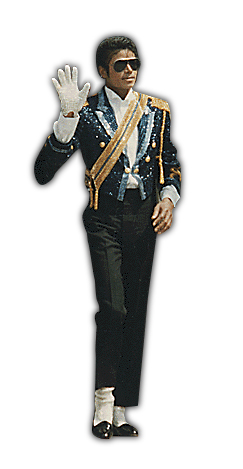I can do this. I’ve had several sessions now with fifth-graders. How much harder can seventeen-year-olds be? Besides, they’re essentially my peers. I was seventeen fairly recently!
We stare at each other for a beat too long. On one side: the American, full of bravado, or trying to appear that way. On the other: thirty pairs of eager eyes focused with rapt attention.
“So. This is the tawjihi class, right?”
There are nods and giggles. Fortunately I’ve gotten used to the notion that everything I say, in any language, is funny.
“So… okay! Tell me about what you’re learning in English!”
Heads turn; girls look at each other. I’ve seen these classes operate and I know that one or two girls will be designated the speaker through a mysterious and invisible pack process. Finally one girl says, “Miss, we don’t want to talk about English.”
I’m hip! I’m with it! So I say “Okay! What would you like to talk about? Anything is fine as long as it’s in English!”
Designated Speaker says, “Miss… please would you sing?”
Of all things, I wasn’t expecting this. “I’m sorry — sing?”
They all nod and begin the chin-stroking “ya miss, ya miss” begging again. I raise my voice a little and gesture to cut them off. “I don’t sing. I promise, you would not like to hear me sing. Why doesn’t one of you sing?”
Silence.
Momentarily, Designated Speaker says, “Do you like Michael Jackson?”
It’s like a Journalism 101 class’s first interview assignment, only on acid. “Yes,” I say, a little bewildered. “I like Michael Jackson okay. Do you like Michael Jackson?”
There are some nods and some giggles and a few girls shake their heads no. Designated Speaker says, “We like his music. But his dancing is aib.”
Aib is a word I dislike. It is decidedly negative and means “inappropriate” or “shameful.” I’ve heard it used in a variety of degrees of judgement. Shakur says it to Maysoon a lot when she does totally normal two-year-old things like take the last piece of candy or pull off her dress to more effectively play in the mud. At this point when he says it he isn’t being really threatening, he’s just teaching her. But at some point, aib behavior scales into haram behavior — and a grown brother can kill his sister for things that are haram. Honor murders are illegal in Jordan, but they happen. So the word worries me, even as I do plenty of aib things myself. Some are deliberate (living alone), and some aren’t (leaving my shoes sole-up, the way I kicked them off).
I decide not to address Michael Jackson’s crotch-grabbing. Instead I say “What other singers do you like?”
Everybody joins in on this one and a joyful noise of names ensues. Answers range from “Amr Diab” to “Ghassan Rahbani.” A few girls say “Ricky Martin!” I decide not to pursue that one either.
Too quickly, the name-listing dies down into awkward silence again. Then a new girl says “Are you a Muslim?”
I know the answer to this one. “I’m not a Muslim,” I say. “My father isn’t a Muslim.”
For the first time in my five weeks here — maybe because in their youth they have fewer social inhibitions, and maybe because a group of girls of any nationality can function like a gam of sharks — this doesn’t work. A third girl calls out “You can become a Muslim. Allah says it’s always good to become a Muslim.”
I try again with increasing desperation. “Would your fathers be happy if you changed religion?” I ask.
Designed Speaker steps up to bat. “No, of course they wouldn’t,” she says pragmatically, “Because Islam is the right religion. Who leaves Islam, makes a mistake.”
I flail. In retrospect, this seems like an obvious conversation, because I will have it fifty million more times over the next two years. At the moment I am utterly at a loss. And I hesitate just a second too long. Suddenly girls are on their feet and, worse yet, heads are being uncovered at a startling rate. At least two girls push each other aside while vying to cover my head with their own ishaar. Meanwhile, another girl says “Just repeat this after me: la ilaha ila Allah…”
I do have to raise my voice and tell them to all SIT. DOWN. Fortunately, it mostly works. There is giggling and awkward shifting in seats, but the girls do in fact return to their assigned places.
We stare at each other again. Then a girl in the back of the room speaks, with an obvious nervousness and the careful deliberate phrasing of a student who is not comfortable in a foreign language. “What thing do you hate most about Arabs?” she asks.
I’m an idiot in a lot of ways but I know not to touch that one with a ten-foot pole — even while answers leap to my mind. Oh boy could I answer that one, after five weeks here. But I know that my answers would be confusing or hurtful, and I know enough about culture shock to know that I probably won’t even feel the same way in a month. So I bite my tongue and say “That’s silly. I don’t hate anything about Arabs. There are some people who do things I don’t like, but it’s not because they’re Arabs. I mean, is there one thing you all hate most about Americans?”
Okay: I am stupid.
The answer is swift and unanimous. Designated Speaker says, “We hate that all Americans hate Arabs!” Everybody nods and murmurs in agreement. “America wants always to tell us we are bad, and America is so powerful. Why does America hate Arabs?”
I do feel that things are escaping my control. I look frantically at the clock and then realize that I don’t have any idea what time class ends, so I have no way to assess how much longer this is going to go on. But it’s rapidly starting to feel like returning to the teachers’ lounge and admitting utter defeat would be the safer option.
Not quite yet, though. I’ll give it one last stab. “I don’t think many Americans hate Arabs,” I insist. “I really think that some Americans are only afraid of Arabs. All people are afraid of things that are new and strange, aren’t they?” I get some cautious nods. “So we think that your culture and your words and your dress are new and scary, maybe.”
Designated Speaker squawks, “Our dress? You mean our ishaar and our jelbaab?”
“Yes,” I say, feeling the ground somewhat more steady under my feet. I wonder if I have the vocabulary to try some basic feminist philosophy about female dress, and I rapidly decide that I do not have that vocabulary. So I say, lamely, “It’s very strange to us that you would wear so much clothing when it is so hot.”
There is actual silence for a literal count of three. Then one of the back-row girls says, “But that’s easy! Only people who dress like this get into heaven. Don’t Americans want to go to heaven?”
It is a moment of one of those tidal shifts teachers understand, and I know I have lost control as a dozen girls spring up again, and at least two whip off their ishaar, and the girl nearest me grabs my hand and says “Just repeat this after me…”
…and suddenly, blessedly, the bell rings.


